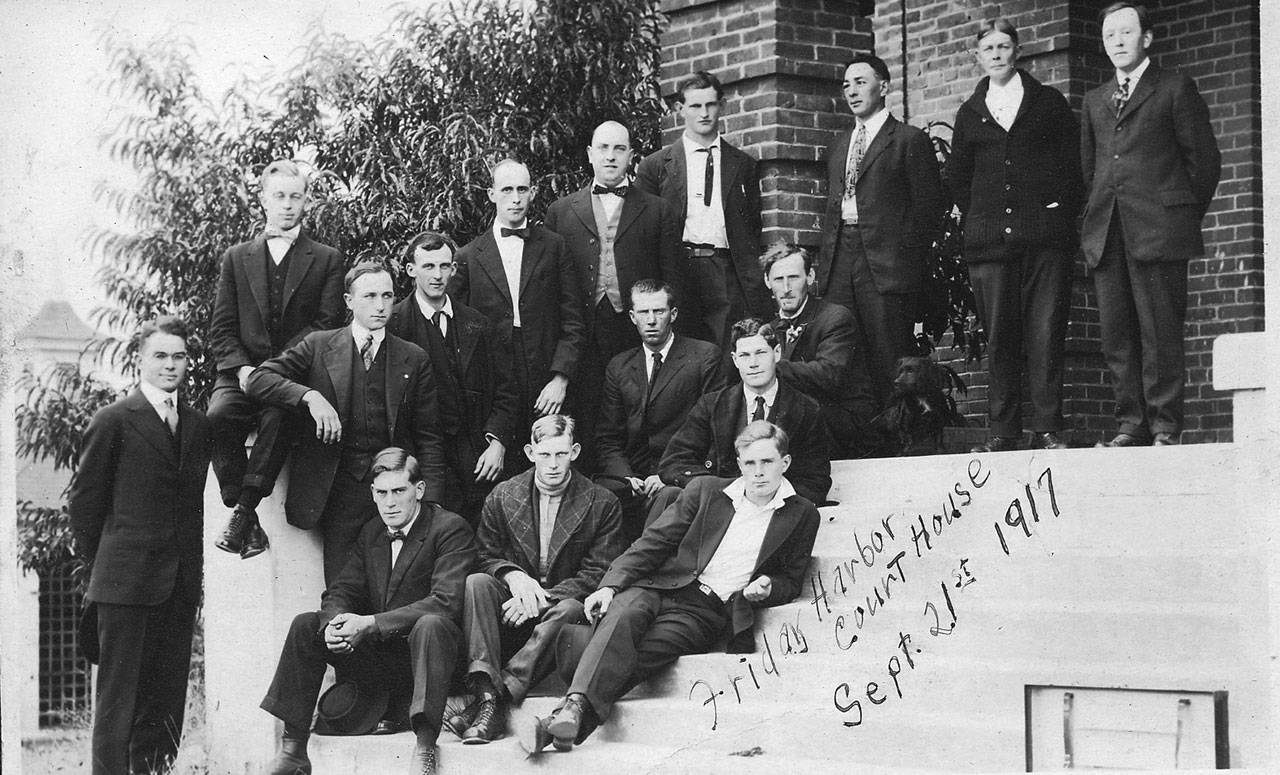Editors note: Times of the movies have been updated.
It was the year 1918, and World War I brought the islands more than its share of grief.
“San Juan County was one of the hardest hit in the nation,” said Peter DeLorenzi, American Legion Post 163 manager, noting that nine of the 144 islanders who fought in World War I never returned home. That amounted to approximately 6.5 percent of their soldiers lost. In comparison, most counties throughout Washington did not lose more than 2 percent.
Nov. 11 marks the 100-year anniversary of the end of World War I. To commemorate the armistice agreement that was signed at 11 a.m, bells of peace will ring out across the nation at exactly that time.
“Anyone with a bell, ring it,” DeLorenzi said, adding that the American Legion will be ringing their bells and the more that join in the better.
DeLorenzi showed films about the war at the legion, at 5:30 p.m., Nov. 8-9 and 11 a.m.-2 p.m., Nov. 12. Admission is free, but museum donations are appreciated. On Veterans Day, the museum opens at 10:30 a.m.
Although nine soldiers did not return to their island home, 133 men and two women did, and these veterans continued on to do incredible things for the community, DeLorenzi said. They chartered the legion, created the county park on the West Side of San Juan Island and the memorial park at the base of Spring Street. That park became the first memorials in the state. On Nov. 17, 1921, The Journal of the San Juans wrote:
“The Armistice Day exercises held in Friday Harbor, Friday afternoon were a huge success under the direction of Hackett-Larson Post American Legion. The main feature of the occasion was the unveiling of the memorial monument in the little park at the foot of Spring Street in honor of the county’s soldier dead of the late war. A notable fact is that this monument is the first … in the State of Washington.”
The veterans came home and continued work in public service. Many served on the county council, became prosecutors, leaders and visionaries. They are remembered by streets throughout the town of Friday Harbor named after them, including Larson, Harrison, Tucker and Franck.
“George Franck, everyone was afraid of him. But, if he wanted something done, it got done,” DeLorenzi laughed.
World War I was dubbed the war to end all wars because of the traumatizing experiences these veterans had, they never wanted another war. Instead, with a desire for peace, these soldiers dedicated the rest of their lives toward making their communities a better place.
“World War I was a brutal and personal war, even more so than the Civil War,” DeLorenzi said, explaining it was one of the first wars that gas was used in battle. Weapons were also short-range, unlike the long-range weapons used today.
“You had to look your enemy in the eye right before they died, or you died,” he explained, adding that experiencing war in those terms changes a person’s psyche.
Often born in the working class, frequently farmers or fishermen, these soldiers did not set out to become warriors, but when the time came, they fought.
“They didn’t complain, gripe or ask for anything,” DeLorenzi said, noting that they were driven by honor and simply did what was needed to be done.
“They were great men,” said DeLorenzi.




